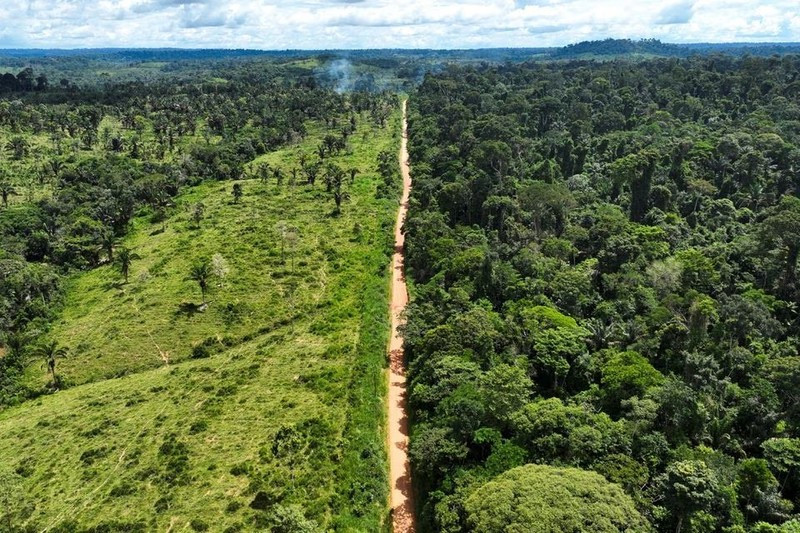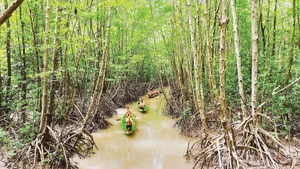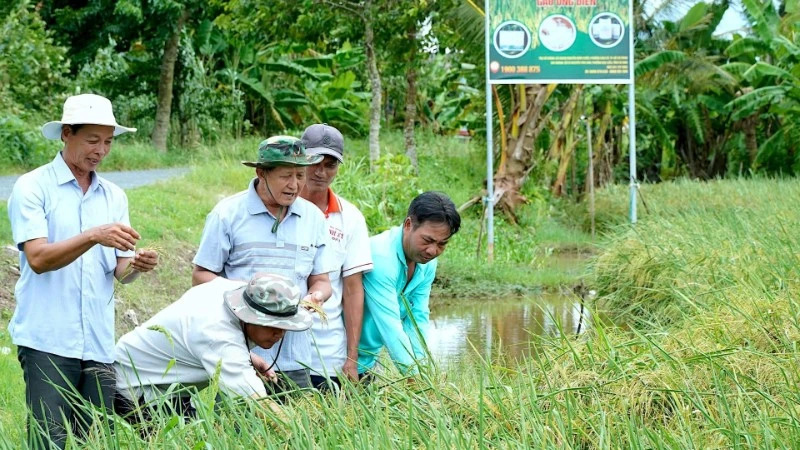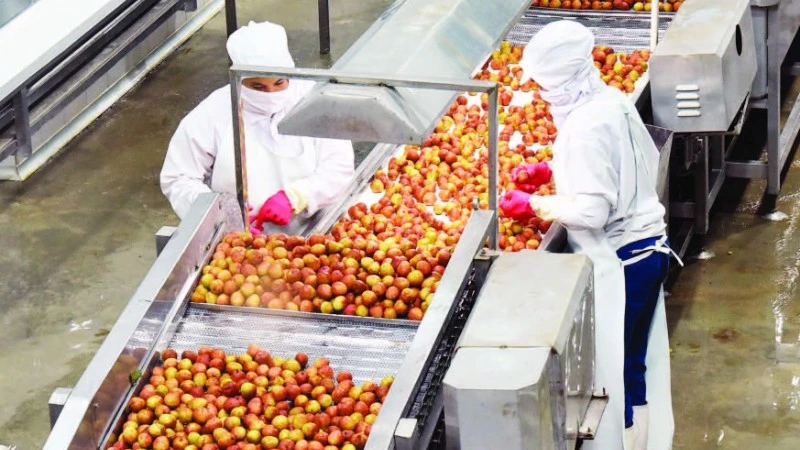Forests are actively participating in the fight against global climate change, providing oxygen to the atmosphere and capturing large amounts of CO2 emissions and are sources of water for nearly 50% of the world's largest cities.
Forests create and maintain soil fertility, as well as help to correct the negative impacts of extreme weather events,such as storms, floods and droughts. The values of forests for life are immense. However, despite the invaluable benefits of forests in terms of economy, society, ecology and health, forests have been seriously destroyed by humans. It is not too late to act to protect and develop sustainable forests, contributing to building a global green economy for public health.
According to the UN, by 2025, 2.3 billion people around the world, spanning 21 countries, will be severely deprived of water for domestic use and farming. The lack of water can be caused by many reasons, but the main reason is that the groundwater level is seriously decreasing due, to the encroachment of forests. Along with the shortage of water resources, the earth's temperature has been gradually warming and may increase from 3 to 6 degrees Celsius by 2050, which is becoming a global concern for effective forest protection.
Forest planting and protection and raising the rate of forest cover, have become indicators to evaluate sustainable development in countries. In recent years, the impact of climate change has become more and more obvious, the weather has been complicated, and natural disasters have become more and more severe and frequent, which have greatly affected forest resources and forestry activities. The forest cover in Vietnam has been also decreasing. The loss of forests cannot be compensated and causes great damage in terms of the economy, jobs and sustainable development of the country.
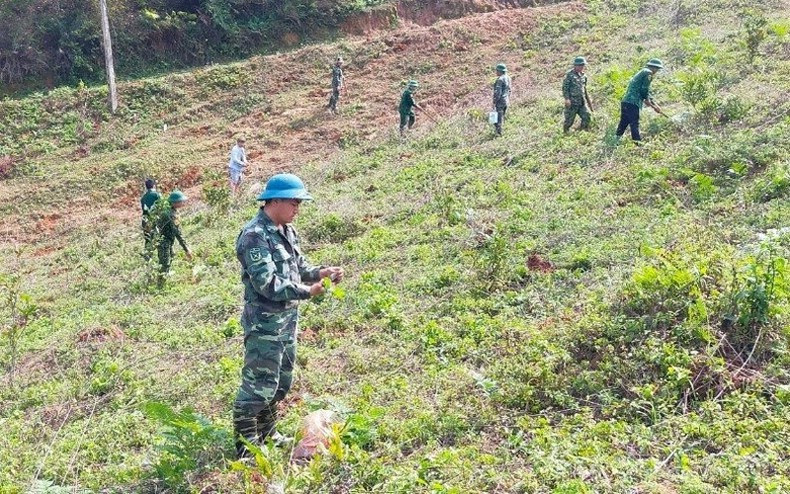 |
| Officers and soldiers of Phieng Pan Border Guard Station plant acacia trees in the station's gardens and training grounds. (Photo: Quoc Tuan) |
Under "Vietnam's forestry development strategy for the2021-2030 period, with a vision to 2050", the Government set out requirements for sustainable forestry development,based on effective management and use of forest resourcesand harmonising economic, social and environmental objectives. The requirements for forest protection and development, especially natural forests, are both an urgent task and a long-term strategy, to develop the country sustainably.
The Prime Minister issued the Decision approving the project of planting 1 billion green trees, during the 2021-2025 period. The project mobilises forces throughout the country to jointly plant, care for and protect nearly 700 million trees, scattered in urban and rural areas, and more than 300 million concentrated planted forest trees.
In 2022, despite many difficulties, localities across the country planted 245 thousand hectares of concentrated plantations and 122 million scattered trees, ensuring a stable supply of raw materials for the wood processing industry.The forest coverage rate was more than 42%. The violations of the forestry law and the damaged forest areas weresignificantly reduced. In addition, the revenue from forest environmental services reached over VND 3,600 billion.
This is an important and sustainable source of finance for the sector, playing a significant role in the overallachievements of the whole agriculture and rural development sector. At the 26th United Nations Climate Change Conference of the Parties (COP26), the Prime Minister committed that Vietnam strives to achieve net zero emissions by 2050, participate in the initiative of “Reducing global methane emissions” and implementing the “Glasgow Declaration on Forests and Land Use”. Vietnam is an active member of the world community in the protection and sustainable development of forests.
